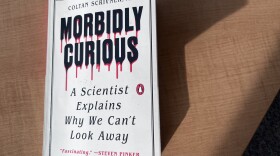
RadioWest
Fridays from 12 p.m. to 1 p.m.
KUER’s award-winning interview show explores the world through deep thinkers who host Doug Fabrizio asks to think even deeper. Join writers, filmmakers, scientists and others on RadioWest: A show for the wildly curious.
-
Jack Kerouac published “On the Road” in 1957, and it became the defining novel of the Beat Generation. Today, a new documentary explores the book’s legacy.
-
Latter-day Saint temple garments are the subject of a new book. The authors surveyed thousands of Church members for their project.
-
In a new biography, the historian Max Perry Mueller argues that Wakara, a Timpanogos Ute leader, should be considered one of the founding figures of the American West.
-
Coltan Scrivner is a psychologist who studies why some of us are drawn to look at gruesome things. He calls it morbid curiosity, and he says it’s not a bad thing.
-
Author and journalist Jonathan Rauch is a Jewish atheist. And yet, he’s calling on Christians to remember their faith — and practice it the way Founding Father James Madison might have done.
-
What weighs five pounds, hasn’t been seen in print for 20 years, but still shapes the way we think about language? Merriam-Webster’s Collegiate Dictionary — and author Stefan Fatsis is here to tell us why it matters.
-
Jerry Kane and his teenage son Joseph were men of no nation. Their lives — and their violent ends — are the subject of the new feature film “Sovereign,” directed by Christian Swegal, who joins us to talk about it.
-
For many people, the night sky is an afterthought, especially if you live in a big city, where all the artificial light drowns out the stars. But the nature writer Craig Childs wants to help us rediscover the dark heavens and consider what they show us about who we are and where we fit in the universe.
-
Lots of people dream about leaving it all behind, but Maurice and Maralyn Bailey really did it. They bought a boat and set sail in June of 1972.
-
This week we spoke with Matt Whitaker about his film “Truth & Treason.” He’s coming back to talk more about the movie, as well as making it with Angel Studios.










